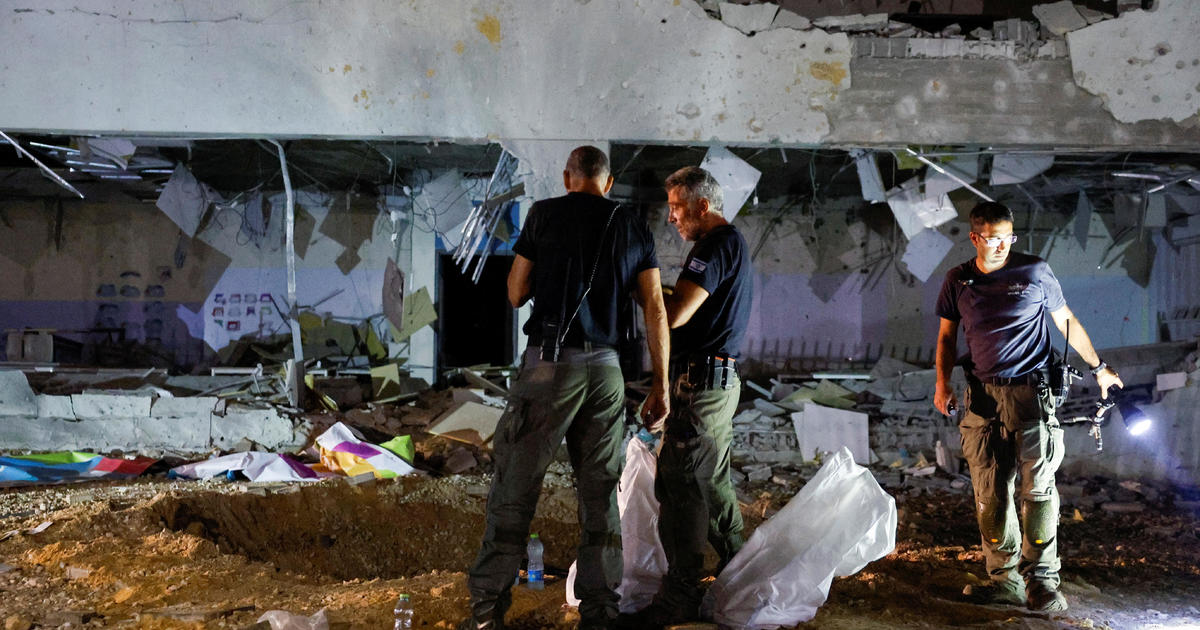Israel and Iran’s escalating conflict marks a dangerous escalation in the Middle East, raising concerns about a wider regional war. Prime Minister Benjamin Netanyahu vowed swift and decisive retaliation for Iran’s unprecedented missile attack on Israel, which occurred on the eve of Rosh Hashanah, the Jewish New Year. The attack, comprising at least 180 ballistic missiles, targeted locations across Israel, triggering nationwide alerts and prompting urgent shelter-in-place orders. While many missiles were intercepted, some landed, causing damage and injuries, highlighting the vulnerability of Israel’s defense systems. The scale and timing of the attack underscore a significant shift in the regional dynamic. The situation’s complexity calls for a comprehensive understanding of the events leading up to the attack, the responses from various actors, and the potential consequences of further escalation.
Iran’s Missile Attack on Israel: A Bold Act of Aggression
The Scale and Impact of the Attack
Iran launched a massive barrage of at least 180 ballistic missiles towards Israel, targeting areas from Tel Aviv to Jerusalem. The coordinated assault demonstrates a sophisticated level of planning and execution, signifying a substantial investment in missile technology and targeting capabilities. The sheer number of missiles, combined with the broad geographical spread of the targets, significantly impacted Israeli civilians and infrastructure. This marked a dramatic escalation compared to previous conflicts, challenging assumptions about the thresholds of acceptable conflict.
The Response and Defense Measures
Israel’s Iron Dome defense system intercepted a significant portion of the incoming missiles, preventing widespread devastation. However, some missiles successfully reached their targets, resulting in injuries and material damage, showcasing both the effectiveness and the limitations of the defense system. The United States also played a direct role in defense, with Defense Secretary Lloyd Austin confirming that U.S. forces intercepted multiple missiles in the Middle East. The swift deployment of Israel’s defense systems, and the concurrent American assistance demonstrate that while damage was incurred, it was ultimately lessened due to effective countermeasures.
The Context of the Attack: Preceding Events and Underlying Tensions
Israeli Military Operations in Lebanon
In the lead-up to the Iranian attack, Israel carried out several airstrikes in Lebanon targeting Hezbollah, Iran’s proxy group. These strikes resulted in significant casualties and displaced a substantial portion of Lebanon’s population. This military action, characterized as targeting Hezbollah infrastructure and leadership, arguably provided the immediate impetus for Iran’s retaliatory strike. These preceding military maneuvers directly precipitated Iran’s response.
The Assassination of Key Figures
The Iranian Revolutionary Guard Corps (IRGC) attributed the missile barrage to the assassinations of Ismail Haniyeh, a long-time political leader of Hamas, and IRGC commander Abbas Nilforoshan. These targeted killings significantly heightened tensions and fueled the decision-making within Iran to undertake direct military action against Israel. These events emphasized the high-stakes game being played out and showcased a calculated decision to escalate the conflict in the face of perceived aggression.
International Responses and the Risk of Wider Conflict
Global Condemnation and Calls for De-escalation
The international community widely condemned Iran’s missile attack, expressing grave concern about the potential for further escalation. The United Nations Secretary-General, Antonio Guterres, strongly urged a ceasefire. The U.S., while affirming Israel’s right to self-defense, called for a proportional response, underscoring international apprehension about the potential for devastating repercussions from military escalation. This global pressure adds to the tension, complicating matters further by highlighting the importance of managing escalation while supporting Israel’s defense needs.
The Potential for Regional War
The escalating conflict raises profound concerns about the risk of a wider war in the Middle East. The presence of numerous U.S. troops in the region further complicates the situation, introducing the possibility of direct American involvement in any escalating military confrontation between Israel and Iran. The potential expansion of the conflict beyond the Israeli-Iranian dynamic presents enormous risks, highlighting the critical importance of maintaining restraint, which may prove difficult with already charged emotions within Israel after the Iranian attack.
Takeaways
- Iran’s missile attack on Israel marked a significant escalation of the regional conflict.
- Israel’s response is likely to significantly impact regional stability, with the potential for a wider conflict.
- International efforts to de-escalate the situation are crucial to avoid a major regional war.
- The underlying tensions and the immediate events leading up to the attack underscore the volatile security situation in the Middle East.
- The involvement of proxy groups, like Hezbollah, adds an additional layer of complexity and risk to the ongoing conflict.









